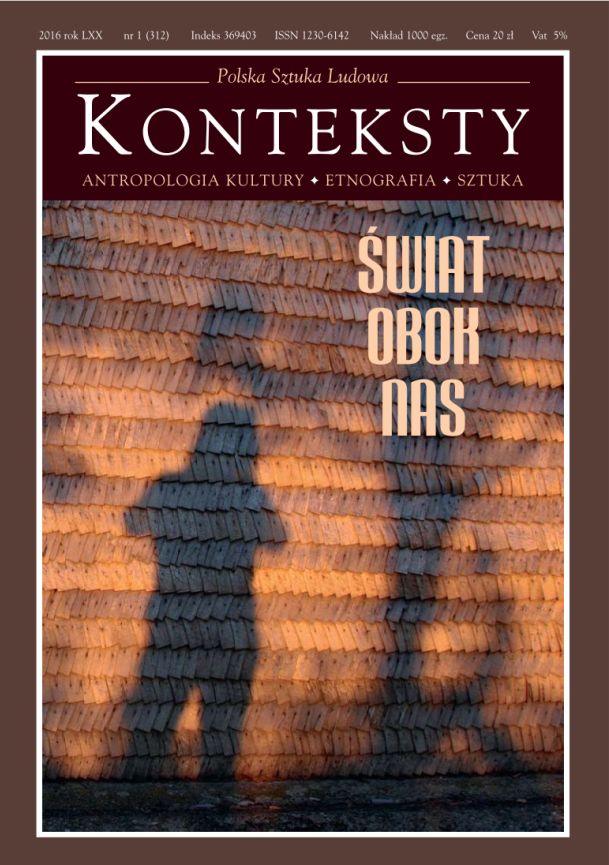Rewolucyjne światy. Polowanie na dorosłych Terayamy Shūjiego – od dziecięcej rewolty do narodzin cesarza Tomato Ketchupa
Revolutionary Worlds. Adult Hunting by Terayama Shūji – from a Children’s Revolt to the Birth of Emperor Tomato Ketchup
Author(s): Nikodem KarolakSubject(s): Fine Arts / Performing Arts, Music, Sociology of Art
Published by: Instytut Sztuki Polskiej Akademii Nauk
Keywords: Japan;radio;performance;
Summary/Abstract: The article focuses on one of the most disturbing Japanese radio plays: Otona-gari (Adult Hunting, 1960) and its film adaptation: Tomato Kechappu Kōtei (Emperor Tomato Ketchup, 1971), both surrounded with an aura of scandal. The director of the two works, Terayama Shūji (1935-1983), a highly influential representative of the Japanese twentieth-century theatre-cinematic avantgarde, proposed a dystopic image of the disintegration of society, in which children mercilessly slaughter adults and set up a marionette state headed by the titular emperor. The Japanese director confirmed his predilection for intertextualisation: his works are collages, both as regards realisation (assorted types of montage, a mixed sound track) and ideology (numerous borrowings from European philosophy). Terayama created a world comprising a mixture of the high and low in the vein of the Bakhtian conception of carnivalisation, and although at times his sense of the absurd is comical the resultant entity is invariably pessimistic. The world created as an outcome of a brutal children’s revolt cannot possess a prolonged raison d’être and is doomed to constant transformations set into motion within a vicious circle of recurring revolutions.
Journal: Konteksty
- Issue Year: 312/2016
- Issue No: 1
- Page Range: 114-117
- Page Count: 4
- Language: Polish
- Content File-PDF

